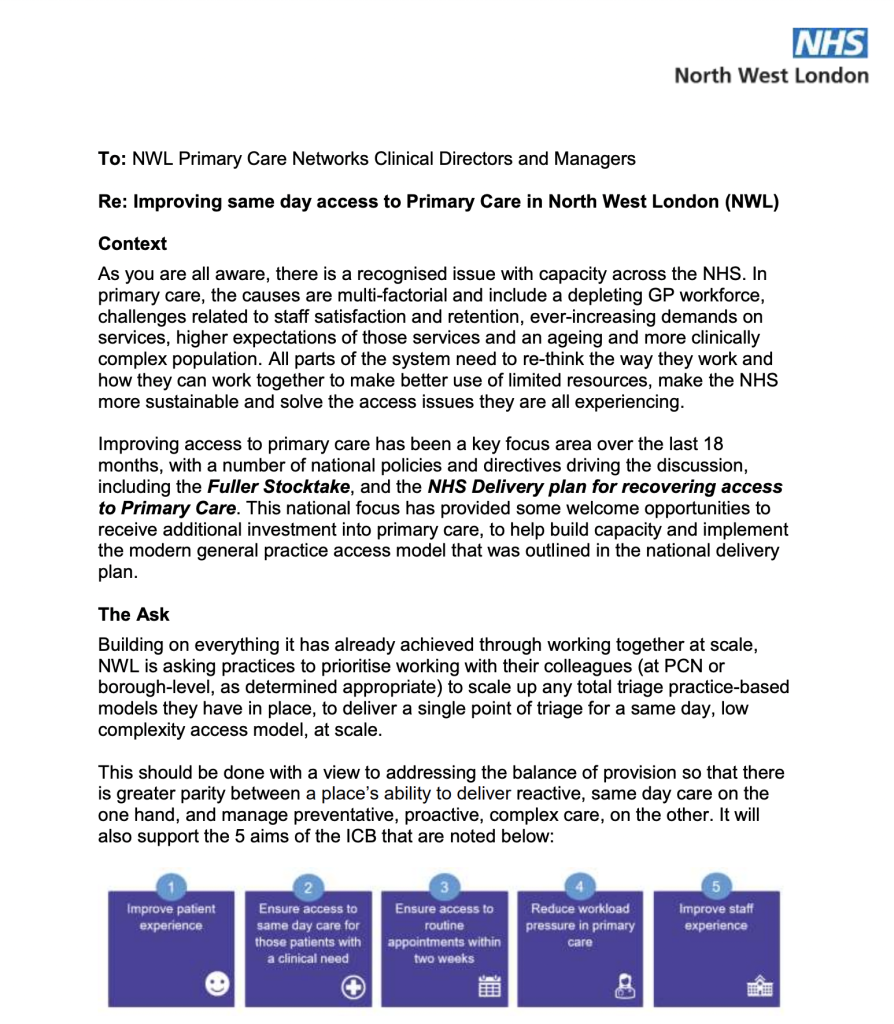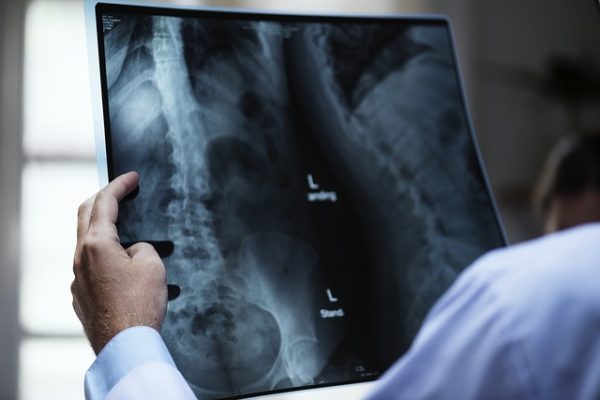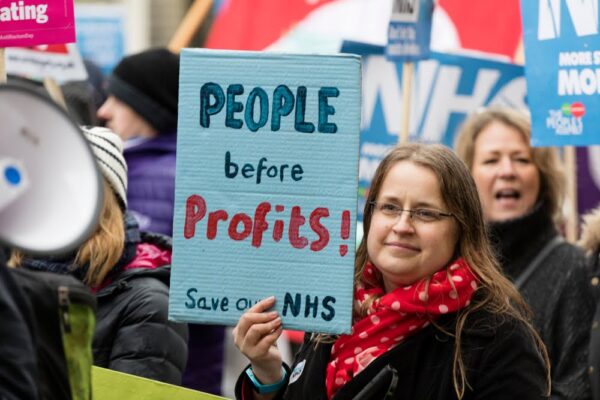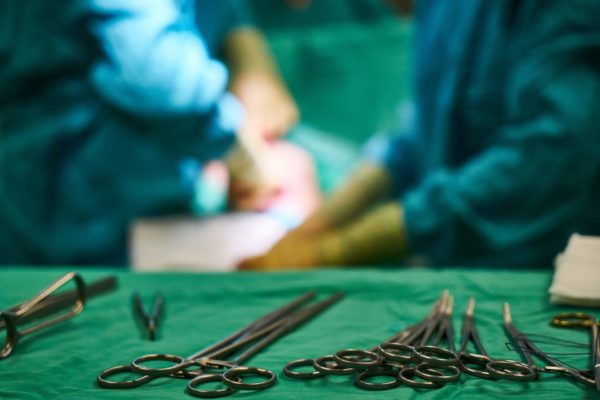Hammersmith & Fulham Save Our NHS (HAFSON) campaigners in North West London have told The Lowdown of a brewing row over leaked plans to force through a wholesale reorganisation of primary care services that would exclude GPs from almost all provision of ‘same day’ GP care for over 2 million people across the Integrated Care System.
Patient participation groups, local GPs and Londonwide LMCs, the body representing GPs across London have all reacted angrily to the revelation that in just 13 weeks the new proposals are to be bulldozed through, fundamentally changing the way people can contact their GP
According to an ICB Briefing Pack sent to the 45 NW London Primary Care Networks (PCNs) at the end of January, the new system would establish “Same Day Access Hubs,” each covering one or more PCNs.
Patients who select ‘same day’ as an option when ringing their own GP would be diverted through to the local hub, each of which would be staffed by a non-clinical care coordinator who would assign the patients for treatment to a team consisting of three “prescribing Advanced Nursing Practitioners or Physician Associates” (or suitable alternative staff) plus a “prescribing pharmacist” and a “social prescriber” – all overseen by a senior supervising GP.
It’s worth noting here that the involvement of Physician Associates, who have passed only a 2-year postgraduate course, and lack the extensive training and experience of GPs, is doubly concerning. It wrongly implies that PAs are authorised to issue prescriptions (they aren’t), and this move to dilute the numbers of GPs involved in delivering GP services also appears to be part of a wider move to sideline fully trained doctors and replace them with PAs and other less qualified staff.
In the NW London scheme the simplest “same day” cases would be handled by the Hub teams, with only the more complex cases given appointments to see a GP.

Because of the way the issue has broken, the most recent documents explaining the new system is not yet in the public domain, but we are making two of them available…
Access – PCN Briefing Pack 29.01.24
Letter to PCN CDs and Managers re. Improving same-day access to Primary …
HAFSON has invited anyone in North West London who is concerned to join an online meeting (headlined “YOUR GP WON’T SEE YOU…”) to discuss the plans and how to fight back, on February 20
In the illustrative example given, the GP in the hub team would personally deliver only 7 per cent (ten out of 146) daily appointments, and get less time (10 minutes with each patient) than the 93% of appointments that would be given 15-minute appointments with the other staff.
The plans, commissioned last year by the NW London Integrated Care Board, appear to have been drawn up and driven by management consultants KPMG.
The plans were reported in a paper to an ICB Board meeting last October, mid-way through the implementation of the ten pilot schemes (which were set up between August and December).
Brent Patient Voice (BPV) chair Robin Sharp wrote at that time to the ICB to express surprise and dismay that the initial exercise had been developed “without the involvement of patient representatives,” and requesting the ICB to proceed no further without such involvement.
But then followed three months of silence.
Only in early February did BPV belatedly discover that a package of information had been sent to all 45 Primary Care Network Clinical Directors on January 29, setting out plans for the same scheme to be driven through across the remainder of the ICS population – despite the fact that the pilot schemes have “neither been comprehensively reported nor objectively evaluated.”
No public consultation
It appears that NW London ICB has made no attempt at patient involvement. The October Board paper explaining activity so far made no reference to any form of consultation or engagement with patients, and the slides sent out in January make only a vague mention of “stakeholder engagement” and a “system-wide access workshop” to involve “stakeholders” that has yet to be announced.
In response to an opening question “What involvement and insights from residents and communities in NW London have informed this work?” the Board paper referred only to a TFG [Task & Finish Group] “looking at Engagement, Coproduction …” etc. (p1-2) but gave no indication that these tasks had been begun, let alone finished.
Without proper information or time to prepare there is clearly no chance to develop engagement or coproduction either with the GPs – who are supposed to be implementing the plan that many GPs now complain they were unaware of – or with patient groups and the wider public.
Short time frame
The BPV letter points out that according to the Board’s report KPMG were only commissioned by the ICB to do specific research work: analyse patterns of demand (scoping demand for same-day care coming through 111, Emergency Departments, Urgent Treatment Centres, and primary care); reviewing ED footfall; reviewing the extent to which 111 was completing and closing calls; undertaking analysis of capacity required to deliver an optimized system, developing proposals and planning for the activity required to prevent annual “winter planning”.
None of this data has been published. Nor has the ICB met to agree on on any further roll-out of the plan. Nonetheless, instead of proceeding based on evidence, the ICB is using the fact that the funding for KPMG is set to expire at the end of March as a pretext for the hurried roll-out of schemes across the whole ICS similar – by April 1.
The health bosses themselves acknowledge in a letter to PCN clinical directors ‘that the 13-week timeframe to effectively support 35 PCNs through the initial design process is short and that it is not an optimal time of year for practices to engage in the change process’.
But it is worse than that: the pilot stage was given five months to roll out, but they now plan to force through the much bigger project to cover the other 35 PCNs in NW London in just 3 months from January 29.
It also appears that the failure to inform or involve patients was deliberate. The BPV letter notes that the ICB Member for Primary Care, Genevieve Small made no mention of the imminent radical changes when she spoke at the last meeting of the North West London Patient Participation Group forum.
However, BPV is now warning that this will backfire on the ICB: once patients do become aware of the plans there will not just be widespread concern but “active opposition to this fundamental and precipitate change.”
NW London patients and campaigners are far from the only people concerned at what is being done and how little has been discussed or revealed openly.
Concerns about safety, quality and effectiveness
The online GP magazine Pulsetoday.co.uk picked up the story on February 7, in an article headlined “GP practices to stop same-day care.” It also noted leaders of Local Medical Committees representing GP practices had voted in November to reject similar proposals set out in the 2022 Fuller Stocktake for separating provision of on-the-day simple acute care from routine general practice care for patients with more complex and chronic conditions.
On February 9, Londonwide LMCs (‘The professional voice of London general practice’) wrote to GPs in NW London to reiterate the concerns it has now formally raised with NW London ICB.
It listed fifteen detailed concerns raised by GPs across NW London under the headings of Patient Safety; Clinical quality and effectiveness of care; logistics (IT functionality and estates required for the proposed system); Patient experience and public consultation; Impact on staff and retention; and “Perception of ‘enforcement’ despite immense concern.”
The letter Londonwide LMCs sent the same day to NW London ICB also points out the lack of any proper evaluation of the mixed results achieved so far in the ten pilot areas:
“We … believe that it is vital that any rollout should be based on evaluation and experience of pilot sites. Speaking as a GP in a practice within one of the ten pilot sites, we have only commenced providing care in a same-day access hub within a limited manner controlled by individual practices and not in the way that is specified in the access enhanced service.
“Given we are still finding our feet, there’s been no opportunity for feedback of our experience nor evaluation of our work. It would therefore be inappropriate to draw upon pilots that are themselves not yet delivering the model, nor having been evaluated, as a basis for widescale rollout.
“Further, feedback from lead clinical directors has been mixed, with many expressing this is still work in progress, and most expressing that they would not want their individual models to be used as a precedent for prescriptive rollout to other areas. “
On February 12 Pulse again returned to the growing row in NW London, headlining “GPs raise ‘immense concern’ around ICB plan for ‘same day access hubs’”.
It quotes one local GP describing the ICB plan in scathing terms:
“Non-evidenced and no mandate – who on earth is driving this? Continuity of care saves lives.”
Pulse also quotes an anonymous PCN clinical director who warns: “you can’t impose anything on anyone and expect them to be committed to it. If the people in the ICB who are responsible for this proposal understood this, then they’d realise that what they are doing and the way they are doing it won’t give them what they want …”
Justifying the ICB’s position the ICB’s director of primary care Javina Sehgal “told Pulse that ‘conversations were happening’ with LMCs and that “the ICB hopes people will see the model ‘as intended’.” Ms Sehgal claimed –despite evidence to the contrary – that the ICB “is working in an open and transparent way.”
ICB medical director Dr Vijay Tailor told Pulse that “there has been a ‘lengthy consultation’ on the future of primary care ‘in general’. Both defenders of the plan and the process claimed that the latest proposals date back years – but disagree on how far back. Javina Sehgal claimed that it is the “culmination of five years’ work,” while Dr Tailor claimed the key decision was taken “right from the outset three years ago.”
What is clear is that the plan itself lacks popular and professional support, made worse by the breakneck schedule for its implementation. So however the ICB tries to explain away their actions, as the plans become widely known dozens of GPs and hundreds of thousands of local residents and patients will be angry to find have been left out of the process.
And with both major parties clinging to vague ideas of ‘reform’ rather than proper funding as the way forward for the NHS, variations of the NW London row could soon trigger similar angry responses in other areas.
The Lowdown, 15 February 2024









